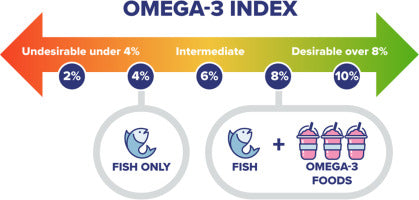The Rise of Gene Testing in Modern Healthcare
Understanding the Role of Lab Tests in Genetic Evaluation
Laboratory tests are crucial in genetic evaluation. They can pinpoint gene changes linked to illness. These tests often require blood samples or cheek swabs. With these samples, lab experts look for DNA markers. These markers can reveal risks for genetic diseases. Labs use advanced tools to read and interpret DNA. Results from lab tests guide doctors in giving personalized care. They help in making treatment plans that fit a patient's genetic profile. By understanding lab tests, patients gain insights into their health risks. This allows them to take steps to manage or prevent certain conditions.

The Impact of DNA Testing on Diagnosis and Treatment
DNA testing has transformed healthcare. It allows for precise disease diagnosis. Treatment plans have become more personal. Patients now receive therapy based on their unique genes. This leads to better outcomes. Tools like CRISPR are tailoring treatments. This reduces side effects from a 'one size fits all' approach. Gene testing can also predict health risks early on. It's vital in cancer, rare diseases, and brain disorders. The tech bridges lab research and real-world care.
Ethical Considerations in Genetic Testing
As gene testing becomes more common, we must address ethical issues. These concerns range from privacy and consent to the potential misuse of data. Firstly, how is patient consent obtained for genetic testing, and are they fully informed? There's also the fear of genetic information being used to discriminate in employment or insurance. Plus, there's the question of who owns this genetic data. Can companies use it without your permission, or do you maintain control? Finally, the implications of predictive testing for diseases with no cure also raise concerns. It can cause psychological stress without providing a clear path for treatment. Thus, ethical guidelines are vital to safeguard individual rights and wellbeing in the era of gene testing.
Advancements in Gene Testing Technology
Innovations Enabling Faster and More Accurate DNA Testing
Recent strides in gene testing are thrilling. We now have cutting-edge tools for DNA analysis. These innovations lead to tests that are quick and precise. With new tech, results come faster than ever. Accuracy is also improved, making diagnosis reliable. These advances help doctors tailor treatments to each patient. It's a big step for personalized care. The tech behind these advancements is varied. We see high-throughput sequencing machines. There are also better ways to handle big data. This means we can spot genetic links to diseases quicker. The goal is to make these tests routine for all. This would boost the precision of health care. In the future, these tools may be used even before symptoms show. This could lead to early treatment and better health for all.
The Integration of AI and Machine Learning in Gene Analysis
Gene testing is evolving rapidly with AI and machine learning (ML). AI helps in analyzing vast genetic data. ML algorithms can spot patterns that humans may miss. This leads to more precise gene analysis. AI can also predict how genes may affect health. This results in better treatment plans. Overall, AI and ML are vital in the growth of gene testing.
Collaborations Between Academia and Healthcare in Genomic Research
The union of academia and healthcare has supercharged DNA studies. Through joint efforts, they use cutting-edge tools and shared knowledge to uncover our genetic secrets. Such partnerships often result in innovative research, groundbreaking findings, and enhanced gene test methods. This synergy is vital for tailoring treatments to individual genetic profiles. It bridges the gap between theoretical research and real-world medical practice. This collaboration is shaping a new era where genomic research is no longer just academic but a key part of healthcare.
The Business of Gene Testing: Opportunities and Challenges
Navigating the Regulatory Landscape for Gene Testing Services
The gene testing industry faces complex rules that vary by country. For services to be legal, they must meet these standards. These include approvals for tests and data use. Companies must understand these to avoid penalties. The landscape is changing with new tech and health needs. Staying updated on laws is key for these services to thrive. In short, navigating this landscape is crucial for success in the gene testing business.
Balancing Cost and Accessibility in Genetic Testing
Genetic testing holds promise for personalized medicine. Yet, cost and access remain hurdles. Affordable options are critical for wider impact. Programs that assist those in need may be vital. Insurance coverage for genetic tests is another area that needs attention. Efforts must be made to reduce disparities in access to these tests. Simplifying the testing process could also help make it more accessible. Collaborations can drive down costs and expand reach. Ensuring ethical pricing strategies is important. Patient education about the value of genetic testing could increase demand and support cost-effectiveness.
The Future Outlook: Market Trends and Consumer Expectations in Gene Testing
The gene testing market is evolving swiftly. We expect major trends like at-home kits to surge. Also, more people now want personal DNA info for health care decisions. Cost may drop due to tech advances. But, privacy worries remain on how DNA data is used. Companies must keep pace with these trends to meet the growing demand. They must also ensure that tests are easy to use and understand.




